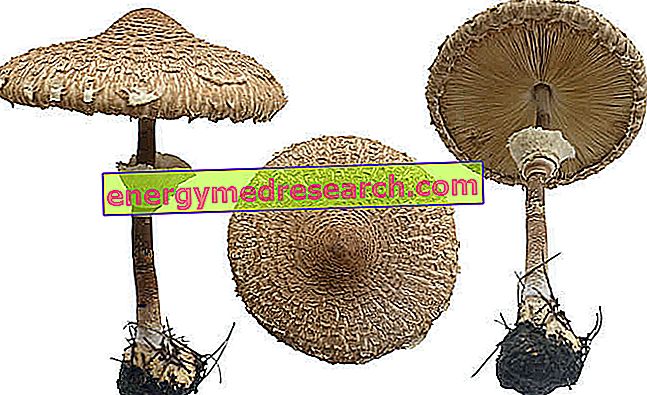A pocket coffee weighs 12.5 grams. Every single pocket coffee provides the body with about 52 calories. The presence of caffeine, prolonging and intensifying the thermogenetic effect of catecholamines, increases the body's energy expenditure by about 6 calories. Pocket coffee ingredients: sweetened liquid coffee 54% (sugar, liquid coffee 34%), extra chocolate 23% (cocoa paste, sugar, cocoa butter, coffee extract, emulsifier: soy lecithin, flavorings), chocolate superior to milk 14
Category alimony
Mayonnaise is a culinary preparation based on the emulsion of egg yolk and oil , which is successfully combined with different dishes. In the category of food sauces, its versatility is unprecedented; some of the classic examples of the combination with mayonnaise are: pitch and both cold and hot fishery products, cold meat, boiled eggs and vegetables
Generality By Mandarin we mean both the tree belonging to the family of Rutaceae, Subfamily Aurantioideae, Genus Citrus, Species reticulata (binomial nomenclature Citrus reticulata ) , and the fruit it produces ( hesperidium ). Mandarin is a real citrus fruit, like: cedar, pomelo, mandarancio (clementine, tangerine etc
What is that What is the drum / bat? Mazza di tamburo is the common name of a "potentially" edible mushroom, belonging to the same biological family of field mushrooms and covers. Also referred to as puppola , major bubbola , parasol or parasol , the drum bat grows in meadows and undergrowths of various kinds
In collaboration with Dr. Eleonora Roncarati storage In terms of conservation, honey is a stable product: this is true as it is not attacked by normal micro-organisms responsible for food alterations (bacteria and molds). However, it may be subject to fermentation sustained by osmophilic yeasts, when its water content is higher than 18%
Generality That of manuka is a monofloral honey of New Zealand and Australian origin. It takes its name from the plant L. scoparium or tea-tree (mānuka or tea tree), whose flowers rich in pollen and nectar feed the bees during the production of honey ( Apis mellifera - of European origin). To be labeled as "New Zeland mānuka honey", bees must use at least 70% of the pollen and nectar from manuka.
What is Sulla Honey? General information on the Sulla honey Like all honeys, also that of Sulla is a product of the hive secreted by European honey bees (Genus Apis specie mellifera ) in the period between April and June. Sulla honey is a sweet food of animal origin used mainly as a natural sweetener to add: in drinks, in various types of recipes and on bread or similar products (rusks, etc
Generality Miso is a typical oriental fermented food. In its "natural" form it has a creamy and spreadable consistency, but more than for direct use, it is mainly used as a condiment or ingredient of soups. Miso soup Miso is also marketed in a freeze-dried form; however it does not have the same chemical and taste characteristics of the fresh product
Generality In its common sense, the term "must" identifies the liquid obtained from the pressing of the grapes (grains) of grapes . However, in a broader sense, we can also speak of must referring to the "juice" obtained from the "squeezing" of other vegetable sources, such as apples, olives, currants, etc
What are What are noodles? Noodles are a long pasta format obtained by shaping an unleavened mixture of flour and water. The various types of flour can have very different chemical and physical characteristics; therefore, when talking about noodles, it is necessary to specify the composition of the raw materials or the geocultural origin
Argan Tree and Fruit Argan is a typical tree of Northern Africa, particularly in southern Morocco. Thanks to the very deep root system, the argan - whose scientific name is Argania spinosa (Fam. Sapotaceae) - does not require any type of irrigation, it takes root spontaneously on the soil of native areas and resists desert advancement and soil erosion











